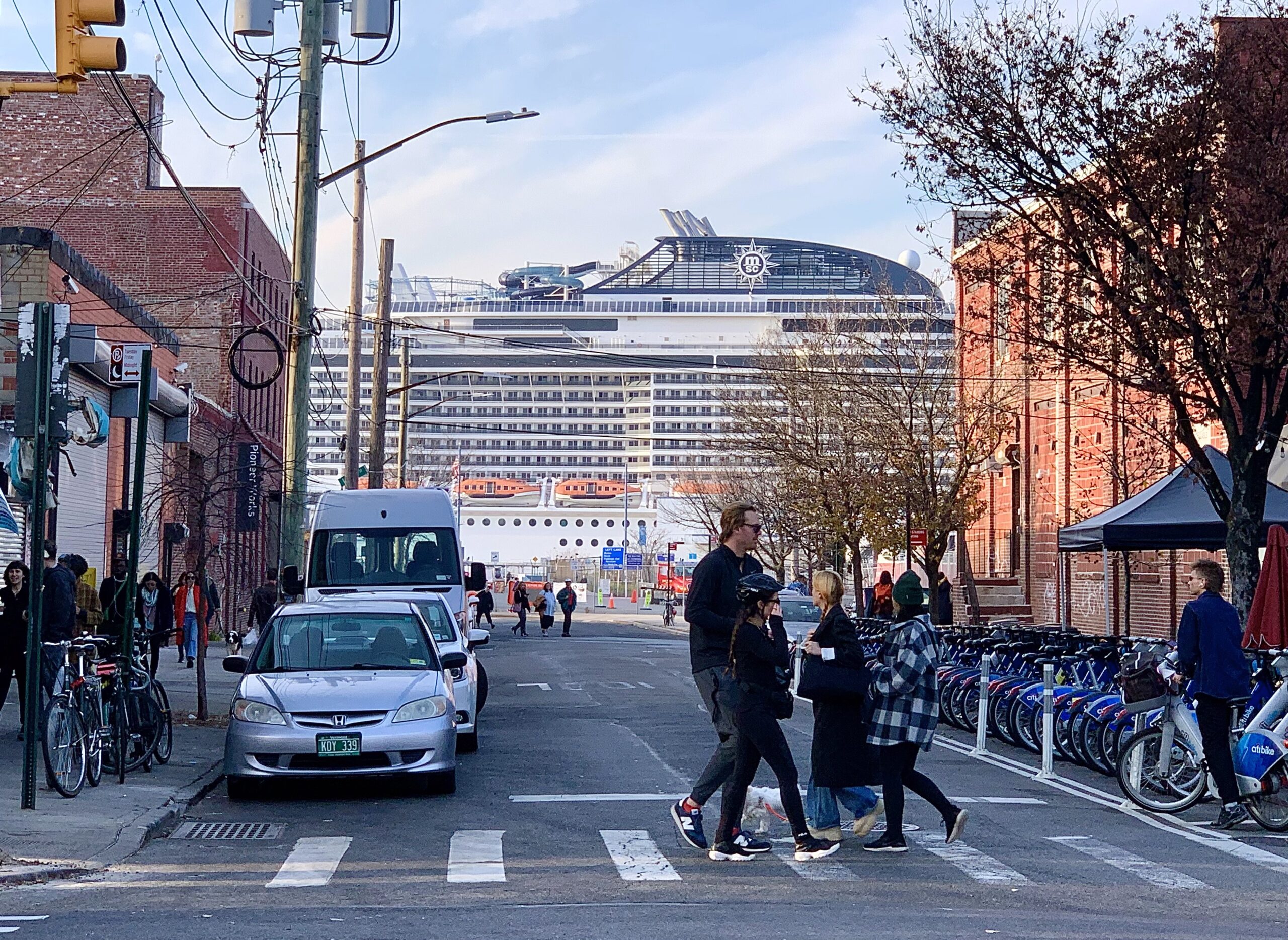Bill passed to cut pollution from giant cruise ships in Red Hook
Requires vessels to connect to electric grid — if they can

RED HOOK — The New York City City Council on Thursday unanimously approved the “Our Air Our Water Act,” which requires giant cruise ships with the capacity to do so to connect to the electric power grid on shore rather than burning diesel when possible.
The bill also requires traffic mitigation plans for neighborhoods affected by the cruise ships, which discharge thousands of passengers at one time onto local streets. The gargantuan MSC Meraviglia, which docks at the Brooklyn Cruise Ship Terminal in Red Hook, has a capacity of 5,600 passengers plus 2,500 crew — almost all of whom use cars to get to and from the vessel.
The legislation was introduced by Red Hook’s Councilmember Alexa Avilés and co-sponsored by Councilmember Erik Bottcher, who represents the district which includes the Manhattan Cruise Ship Terminal on the West Side.